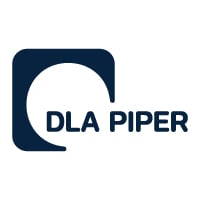

Director, legal and sustainability | Matkahuolto




Riku Korpela
Director, legal and sustainability | Matkahuolto
Team size: Four
What are the projects that you are most proud of working on over the past 12 months?
Matkahuolto is owned by the national and eight regional associations of bus operators, having its roots in providing services to individual bus operators and passengers. Through the transformation of its parcel and logistics business (“PLB”) in recent years, the methods of shareholder value creation to the bus operators being members in the associations owning the company have undergone a radical change. Whilst the digital transport services, provided to bus operators, passengers, municipalities and other customers, contain certain elements closer to co-operative, the PLB operates in a traditional market-based business model. Certain friction is created when having owner entities which are not designed nor capable of taking advantage of monetary shareholder value created by PLB. Shareholder associations aren’t further able to invest in developing the PLB in accordance with the market and competitive conditions. In the past 12 months, we have started the discussion and prepared the analysis to address the issue of the friction.
Other interesting projects in the field of legal affairs involve closing of a business sale and purchase transaction with a financially distressed seller entity, as well as certain essential development initiatives in data protection. The common denominator for all the projects, in addition to various other tasks, has been implementation of the company’s strategy, typically burdened by limited resources and changing priorities.
How do you approach managing legal aspects during periods of instability or crisis to ensure the organisation’s resilience?
In my opinion, the instability or crisis can be prepared for and managed with the value of a few cornerstones of everyday operations. When the standard processes and practices are in place and working well, this releases capacity to address matters which arise suddenly or with more exceptional nature. Further, having the standard processes and practices in place typically translates as a better legal and ethical culture, which is a great starting point to implement necessary practices.
Also, appropriate resourcing enables legal departments to react in due time for such events and circumstances which require the support of legal team. A suitable and cost-effective partner network providing extra-resources and necessary competences, if required, for ensuring required support in a flexible way.
A dialogue with business should be in place to discuss the current and potentially altered conditions and risks. It is more important to involve the legal team in the planning at an early phase to better recognize the potential risks related to business continuity and/or changing conditions.
In addition to these, I see as necessary to have the capacity and mindset for changing priorities of the business since the changes in the market can be quite radical – you may have to for example transfer from business development mode to cost saving mode at a fast pace or assist to plan and execute changes in the fundamental elements of the business.
What do you think sets you apart from other in-house counsel?
I have a unique work history which has – in good and in bad – provided me with a comprehensive view on general management of a company and the role of legal affairs as well as expectations imposed. I started in a mobile tech start-up in 2002 as summer associate for legal affairs and after the summer, I was left in charge of the legal affairs of the company while still being a student in the faculty of law. Since then, I have reported to CEO’s and CFO’s – the emphasis has been on straight-forward and solution-oriented approach to legal matters as well as implementing corporate strategy and evaluating the matters with a wider perspective to company’s operations and performance. It wasn’t until 2016-2019 when I reported to a general counsel in a public listed company (Kesko) after it acquired my employer. I believe the differences of years reporting directly to CEO & CFO’s as opposed to a general counsel are visible, especially in evaluating the matters as a part of company-level agenda and priorities. This has further been amplified by the opportunity to have a seat in the boardroom as the secretary and work with excellent chairmen and board members. On the other hand, I have been forced to invent the wheel again and again in various processes and procedures without having a manager sharing the best practices – however, I have been able to benchmark these practices and procedures and in such way have the confidence that the decisions I have made by myself, have been correct ones, and in some cases I have been able to pick up some advice on how to develop my practices. To conclude, I’d say that these experiences have greatly assisted me in seeing the legal challenges from a business perspective and taking a role in general management of the company.
What do you think are the most important attributes for a modern in-house counsel to possess?
While the world is getting more complicated and judicial, it is more and more important to be able to translate the obligations to the management of the company as well as to the business in an understandable way. Further, new regulation may open some opportunities which should be brought up for the consideration of the management and the business. These new regulations require a proactive approach and good knowledge of the business, but especially the perspective of which changes are material and take top priority. Having the internal discussions over the new regulation and ensuring the understanding of the obligations and opportunities further typically requires a clear and concise communication and simplified messages. Success in translating broad and complex regulations into simple, effective and understandable message to the management and business is an important method of legal affairs to create additional value.
Secondly, as the pace for all changes appears to be faster and faster, the capability for constant improvement and curiosity for new technologies are essential to maintain a high-quality and effective operations of legal affairs. AI and its applications will provide numerous opportunities to save time from low-value assignments and re-direct the time to more value adding work. This will also change the way the legal services are provided on the market and the pricing of the law offices, thus carrying also the effect in relation to building up and maintaining a suitable and value-adding partner network.
Thirdly, however not as an isolated matter for in-house counsel, the new generations entering into employment market have very different expectations from their employers and managers. The sense of purpose, security, respect and involvement can not be underestimated in leadership and the daily operations although for example hybrid work models may cause certain challenges for maintaining these attributes at high level and employee engagement.